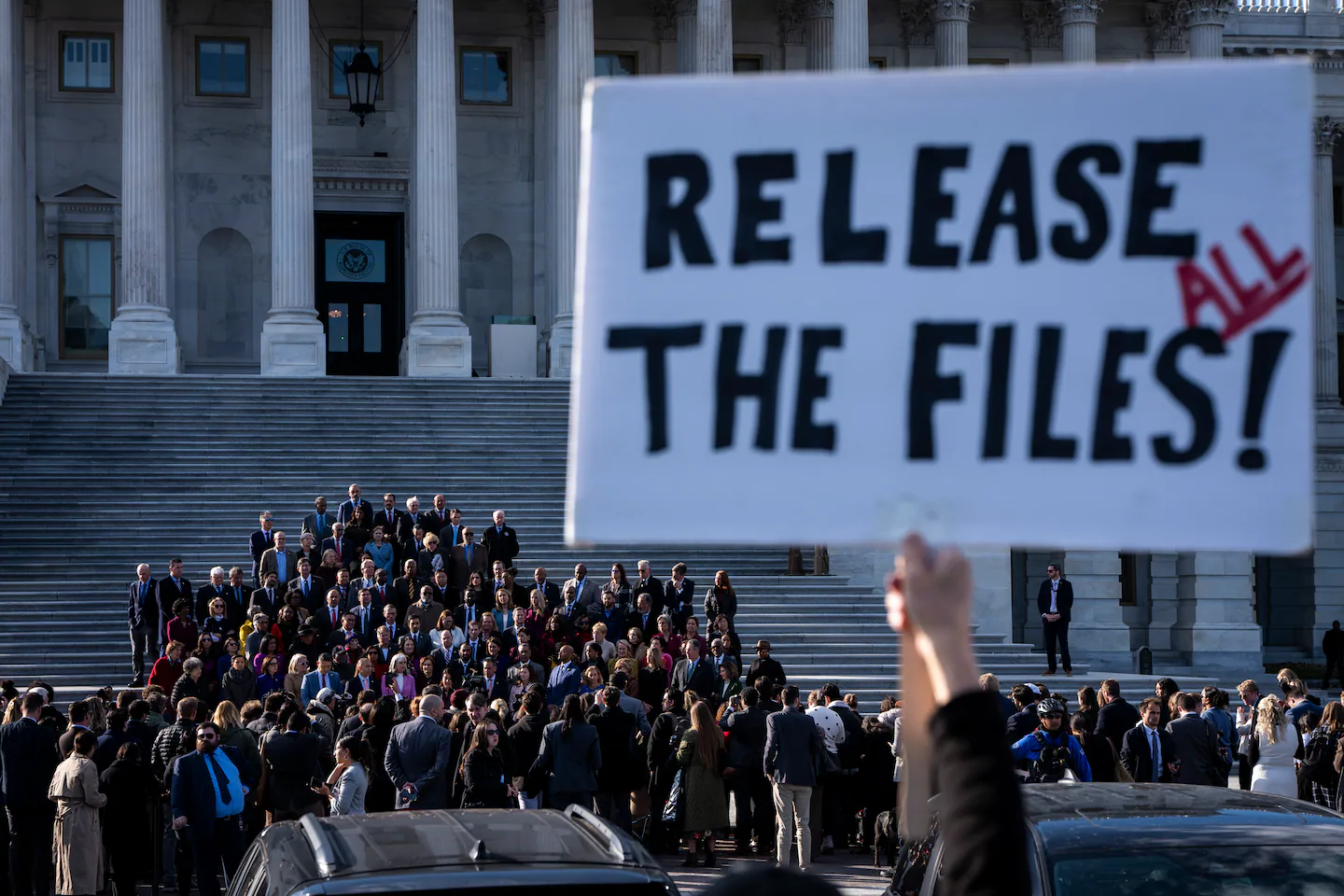Copyright The Boston Globe

This week, a new refrain may have been born — one that could linger through Trump’s second term: But his emails. The “his,” of course, refers to Jeffrey Epstein, the convicted sex trafficker now long deceased. As the government reopened after the recent shutdown, two events emerged that could cast a long shadow over the rest of Trump’s presidency. First came the release of selected of Epstein emails from Democrats on the House Committee on Oversight and Reform and later a much bigger tranche from Republicans on that committee. They detail not just the onetime friendship between Trump and Epstein — including reports they shared a girlfriend — but also a damning allegation from Epstein himself that Trump “knew about the girls.” Epstein was referring to the underage victims he trafficked and abused from his homes in Manhattan and Palm Beach to his private island. Trump has long denied any wrongdoing. So far, there’s no direct evidence contradicting him, aside from accounts placing him at an Epstein property where one of Epstein’s victims was also present. That woman, now deceased, once said she never saw Trump behave inappropriately. The second development came when Speaker Mike Johnson swore in Arizona Democrat Adelita Grijalva, who won a special election in September. Her arrival gave Democrats the 218th signature they need to force a House vote on a measure requiring the Justice Department to publicly release everything it has on Epstein. The White House reportedly scrambled to block that vote, which could come in early December. Conventional wisdom says the Senate won’t take up the measure — sparing Trump from signing or vetoing it. Still, it’s notable: As a candidate, Trump promised to release the files. Here are the ways the files could complicate Republican internal politics: 1. Republicans may be forced to break with Trump Republicans have twice voted against impeaching Trump, often arguing that while his conduct was questionable, it didn’t rise to an impeachable offense. This time is different. Supporters of the Epstein disclosure measure say as many as 50 Republicans could back it — and they might be right. Unlike with impeachment, much of the GOP base wants the files made public. Lawmakers in swing districts may decide it’s easier to defy the president than explain on the campaign trail why they’re covering for him. 2. A crack in post-Trump Republican politics Every modern president has faced a moment in their second term when their party began to move on — even popular ones. For Lyndon Johnson, it was the Tet Offensive. For Ronald Reagan, Iran-Contra. For Bill Clinton, perjury. For George W. Bush, Hurricane Katrina. The Epstein files could be that moment for Trump — a scandal impossible to defend, giving Republicans room to show independence. Then again, many said the same after Jan. 6. Eventually, the party rallied back to him. Still, unless voters -- Republican voters in particular -- believe every Epstein file has been released, this issue will hang over next year’s House and Senate races. 3. Trump’s numbers could sink even lower Trump’s approval ratings are already scraping historic lows. Renewed focus on Epstein — and any sense of a coverup — could drive them lower still. Democrats already loathe him, and few independents remain persuadable. But among Republicans, the idea that Trump once counted Epstein as a friend, and may still be hiding something, is radioactive. If anyone still entertains talk of a third term, approval ratings in the 30s should end it. Even if Trump, well into his 80s by 2028, wanted to run again, the path to victory looks nearly impossible. And if he stonewalls the release of the files, the phrase will linger — a haunting echo from 2016: But his emails. James Pindell is a Globe political reporter who reports and analyzes American politics, especially in New England.



